Great Fantasy Comedies to Watch After Dungeons & Dragons: Honor Among Thieves
Don’t let the laughs or magic spells stop after you get home from Dungeons & Dragons: Honor Among Thieves.
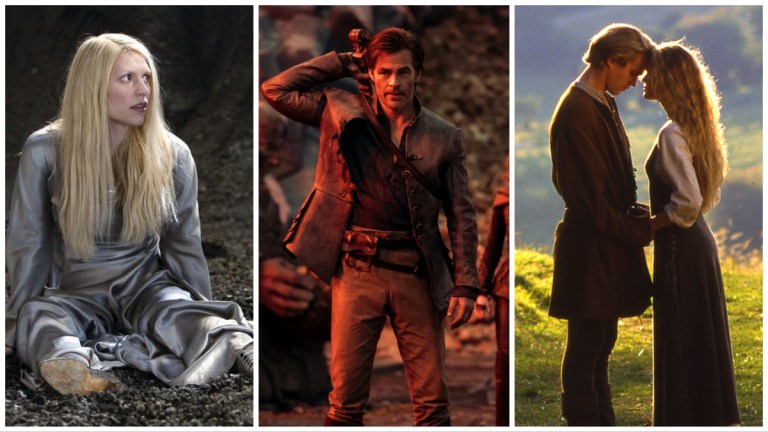
It felt good didn’t it? Watching a fantasy film where folks could crack a smile and actually enjoy their adventure. There was certainly danger and monsters in Dungeons & Dragons: Honor Among Thieves—not to mention the roleplaying tabletop game’s namesakes!—but that didn’t mean you couldn’t enjoy the ride.
In the last 20 years, fantasy has largely come to take itself exceedingly seriously where the fate of kingdoms or the entire world often hangs in the balance, and the central heroes who may start merry end the story broken, traumatized, and in a few instances ready to murder their homicidal lover… who is also their aunt.
This past weekend’s winsome D&D movie did away with all that, instead favoring some good old-fashioned romping to go along with a pure cut of high fantasy. If you enjoyed the experience, here are some other fantasy movies we recommend to continue the fun.

The Princess Bride (1987)
We begin this list with the most obvious comparison. But that doesn’t make it a bad one! Far from it, actually, as Rob Reiner and William Goldman’s The Princess Bride is that rarest of things: a perfect movie. Setting out to do exactly what it intended, the film adapts a cheeky and self-aware fantasy novel Goldman began writing for his daughter when she was just a child (although he never really stopped adding to it for the rest of his life). Taking that slightly skewed and pithy sensibility to heart, Reiner crafted a simple storybook romance that has the total earnestness of a classic Walt Disney animated film—at least until narrator Peter Falk and Fred Savage as his precocious grandson butt into the story, arguing over the conventions of the genre.
The result is a timeless fantasy that’s as gentle as a ballad played on a mandolin, and yet has a very specific sense of humor with many of the characters speaking like mid-20th century, Jewish New Yorkers, with Reiner and Goodman casting pals like Billy Crystal as Miracle Max and Wallace Shawn as the inconceivable Sicilian, Vizzini! The modern humor complements instead of undermines the tender love story of Westley and Princess Buttercup (Cary Elwes and Robin Wright, both fresh faced and perfect), elevating the movie into an irresistible fairytale. Plus, it has Mandy Patinkin as Inigo Montoya, the greatest son in the fantasy genre.
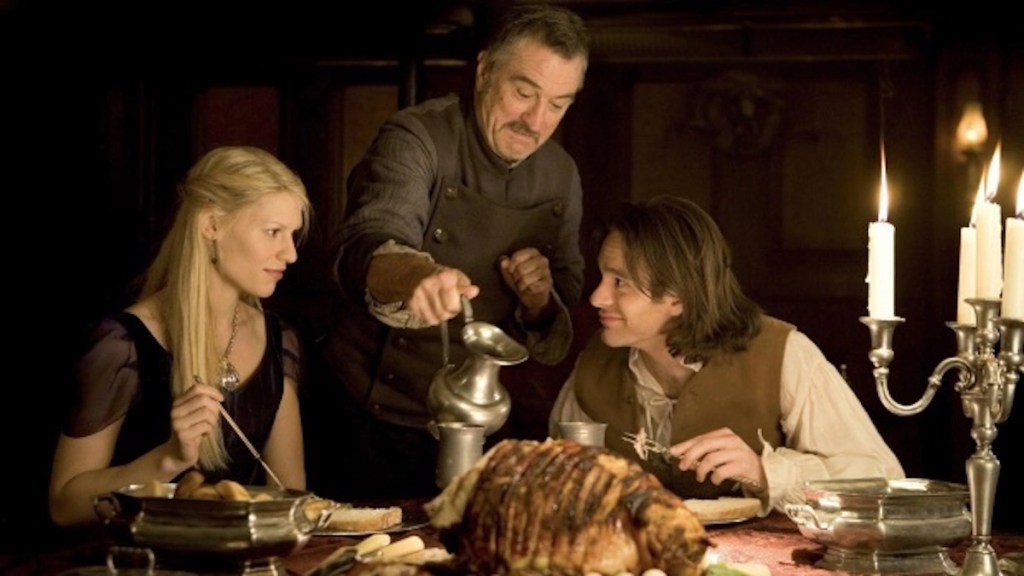
Stardust (2007)
More recent than The Princess Bride, although definitely influenced by it, Matthew Vaughn’s Stardust is another fantasy adaptation that came about because Vaughn, best known as a producer and director of gritty gangster movies at that time, wished to make something for his daughter. He chose wisely then by adapting Neil Gaiman’s own illustrated fantasy book with a sense of irony and whimsy.
Told like a literal bedtime story, Stardust is about how a boy (pre-Daredevil Charlie Cox) in Edwardian England chases a shooting star that’s fallen to earth in order to impress a girl. Rather than finding actual stardust though, he discovers the star is a young woman herself named Yvaine (Claire Danes) and she wishes desperately to return to the heavens—which is easier said than done when an evil witch (Michelle Pfeiffer) is hot on their heels, eager to bathe in Yvaine’s glowing blood to reclaim her youth.
Pleasant, carefree, and sometimes wickedly funny, such as when a mad old king (Peter O’Toole) encourages his grandsons to start murdering each other so as to claim the lion’s share of the inheritance, Stardust is a joy whose pleasures sneak up on you—this includes Robert De Niro as the pirate captain of a flying Spanish galleon and whose secrets are too delicious to spoil here.
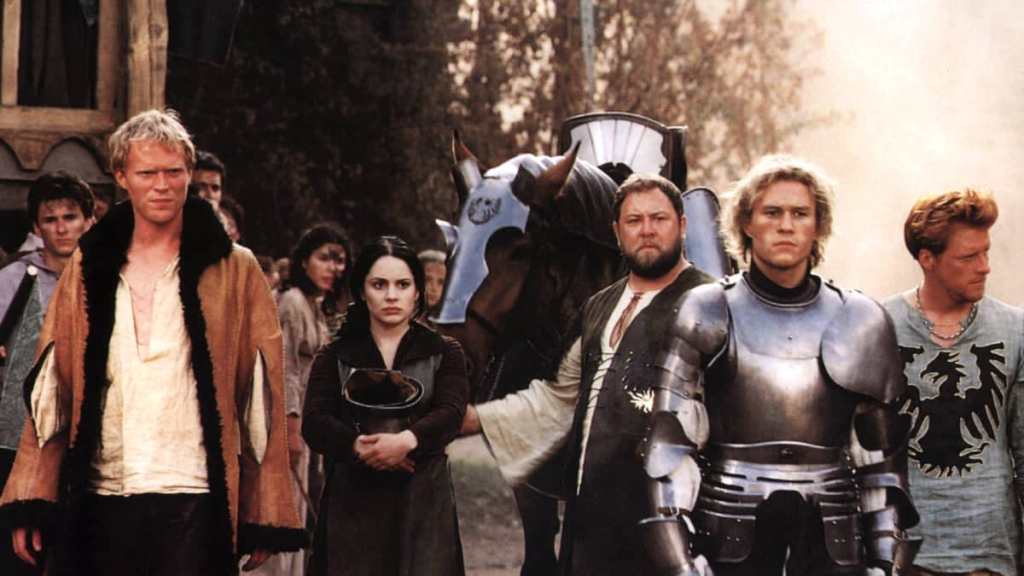
A Knight’s Tale (2001)
Less a full-throated fantasy than a delightful excursion into historical anachronisms, it’s still a wonder that Brian Helgeland’s A Knight’s Tale ever got made. It’s a film that begins with nobles and serfs alike in pastoral France dancing in the stands to Queen’s “We Will Rock You” as they await a fun day of jousting, and which features a scene of the heroic pretend-knight William Thatcher (Heath Ledger) meeting the famous scribe Geoffrey Chaucer (Paul Bettany) in the middle of a road where the recently humiliated Chaucer is bare-arse naked after losing a bet. William, a lowly squire who’s attempting to pass for a knight, introduces himself as a lord; the nude and sunburnt Chaucer responds, “Richard the Lionheart, pleased to meet you!”
A Knight’s Tale is a modern sport’s movie as formulaic as Rocky or Creed, and yet it ingratiates itself with an undeniable charm and confidence. William’s love story with the aristocratic Jocelyn (Shannyn Sossamon) leads to scenes where he intentionally lets his opponents clobber him on the jousting field because to win her favor, Jocelyn asked him to lose and have his chest pounded in (such is love, no?). It’s lighthearted, meta, and strangely inspiring as things get real in the third act, at least when Chaucer isn’t playing the role of bard-turned-hype man.
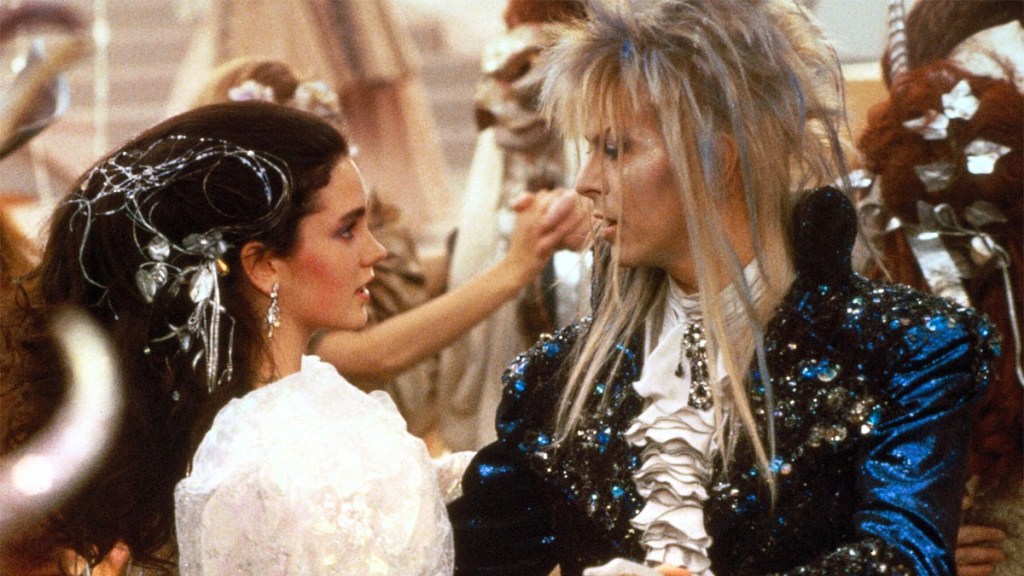
Labyrinth (1986)
Erring much closer to the comedy and lighthearted side of the equation, the legendary master of puppeteering, Jim Henson, directed a screenplay by Monty Python’s Terry Jones when he made Labyrinth. Which is to say this is definitely a film intended for children, however it is sometimes shockingly and subversively dark despite being a musical where puppets sing songs.
A major reason for that is David Bowie provides many of the songs by playing the villainous Jareth, the Goblin King who wishes to transform the infant brother of heroine Sarah (Jennifer Connelly) into a goblin puppet who bends to his will. The eyes Jareth has for Sarah, played by an only 16-year-old Connelly, are also uncomfortable, to put it mildly. Yet the movie is ultimately a strange blend of light and dark, puppet and humans, that takes itself a lot more seriously than the Muppets. The world Henson built also looks fantastic.
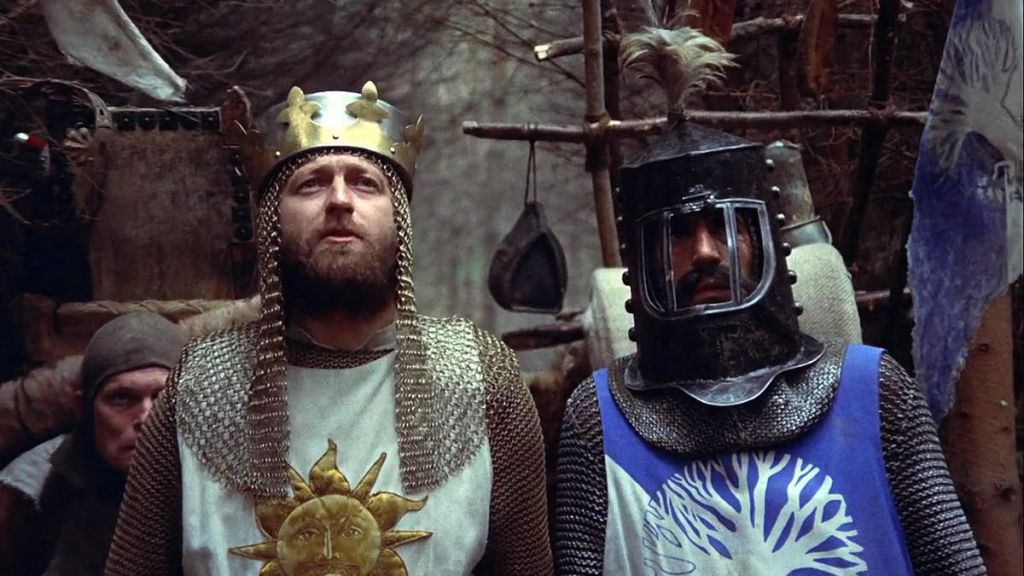
Monty Python’s Holy Grail (1975)
For something a little more adult, you can go straight to the source of Terry Jones’ sense of humor about fantasy stories (as well as Terry Gilliam, John Cleese, Eric Idle, and the whole Monty Python troupe). An all-out comedic assault on the many variations of Arthurian legends and English folklore as a whole, Monty Python’s Holy Grail is a seminal touchstone in the gut-busting power of anarchic comedy that sees the charm in laughing at everything while valuing nothing.
There is a plot (kind of), but it’s so barebones it doesn’t matter in this exceedingly English collection of sketches set loosely in the Dark Ages (with all the historically inaccurate assumptions that invites) where King Arthur (Graham Chapman) struts around the countryside prancing on an imaginary horse as his put-upon valet (Gilliam) smacks together two-halves of a coconut. It’s an absurd sight, yet everywhere he goes, folks know he’s the king. Why? Because as one serf says to another, “He hasn’t got shit all over him.” You can laugh along on your own from there.
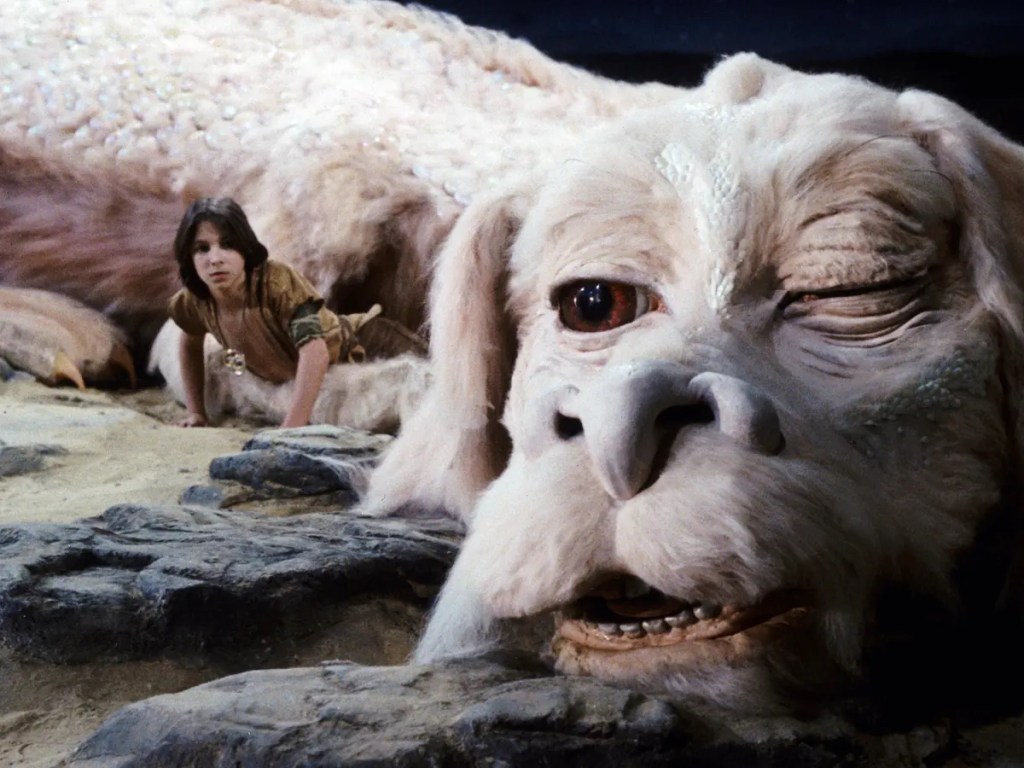
The NeverEnding Story (1984)
More of a sincere fantasy film than an outright comedy, Wolfgang Petersen’s Gen-X touchstone, The NeverEnding Story, is still of an era where fantasy was taken with a tongue firmly planted in its cheek. About a young boy skipping school to read of the adventures of Atreyu (Noah Hathaway) in the realm of Fantasia, the film’s Neverending Story-within-The Neverending Story finds Atreyu to be a brave teenage warrior who’s been summoned by the Childlike Empress (Tami Stronach) to the shimmering Citadel. There he is tasked with going on a quest to save their kingdom from “the Nothing,” a grim shadow that swallows everything it touches in total darkness. Along the way, Atreyu will face quicksand, Sphinx-spewing riddles, and a friendly talking Luck Dragon named Falkor who becomes his companion and mode of transportation.
This is the epitome of ‘80s high fantasy for wee ones. There is at times a pleasant goofiness about it, such as when we’re introduced to talking mountains and halflings who more than a little resemble J.R.R. Tolkien’s Ents and Hobbits. But there’s also an alternating sense of doom when the Nothing is personified by a glowing-eyed wolf, or the Swamps of Sadness attempt to swallow Atreyu whole in despair. Admittedly, it’s not a barrel of laughs, but it’s a classic throwback to an era when fantasy movies were largely more innocent.
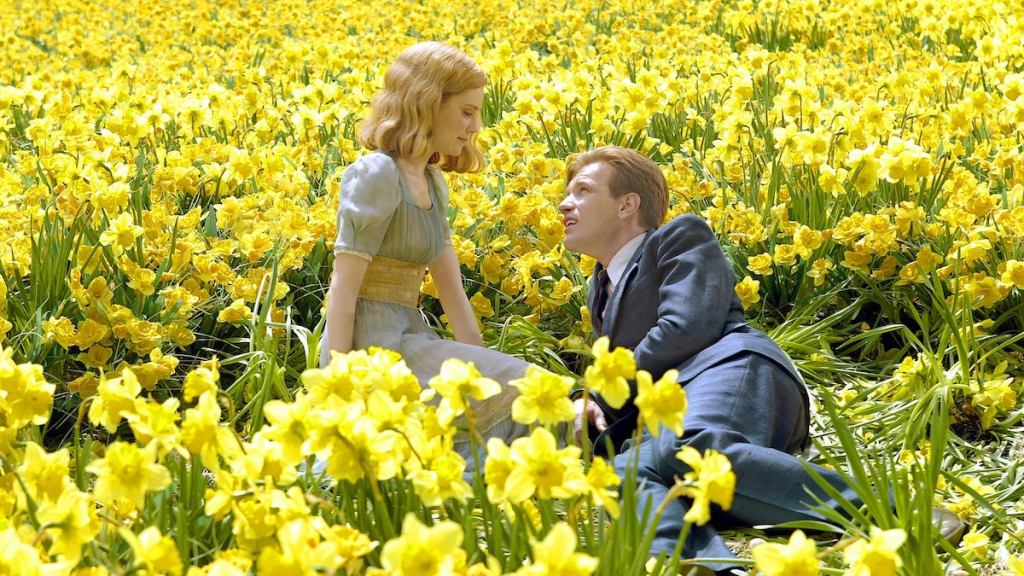
Big Fish (2003)
This is not a high fantasy film… but it is most certainly a comedic fantasy that will appeal to viewers who enjoy a sense of humor to accompany their incredulity. One of the last great movies Tim Burton made as a director, Big Fish departs from his typical Gothic aesthetic for something a little more Southern. A story of fathers and sons, the adult Will Bloom (Billy Crudup) struggles mightily to understand his father Ed (Albert Finney), a gregarious Southern gentleman with a penchant for tall tales. Everything Will knows about Edward’s life is from campfire stories that take on a mythic bombast, epitomized by flashbacks where young Eddie (Ewan McGregor) experiences Jonathan Swift-like ordeals in order to win the hand of the love of his life (Alison Lohman). In fact, the first time he sees her, time itself literally slows down, with McGregor walking through a shot where everyone and everything else is frozen, including bubbles in the air—that is until things speed back up in double time, leaving Ed hopelessly out of step.
Revisiting Big Fish reminds viewers of a time when Burton had absolute control over tone, alternating between his more grounded and natural wrap-around story and genuinely affectionate, big-hearted fantasy tales drenched in Americana and a winking silliness. Big Fish is a true crowdpleaser that more people should remember or discover.
